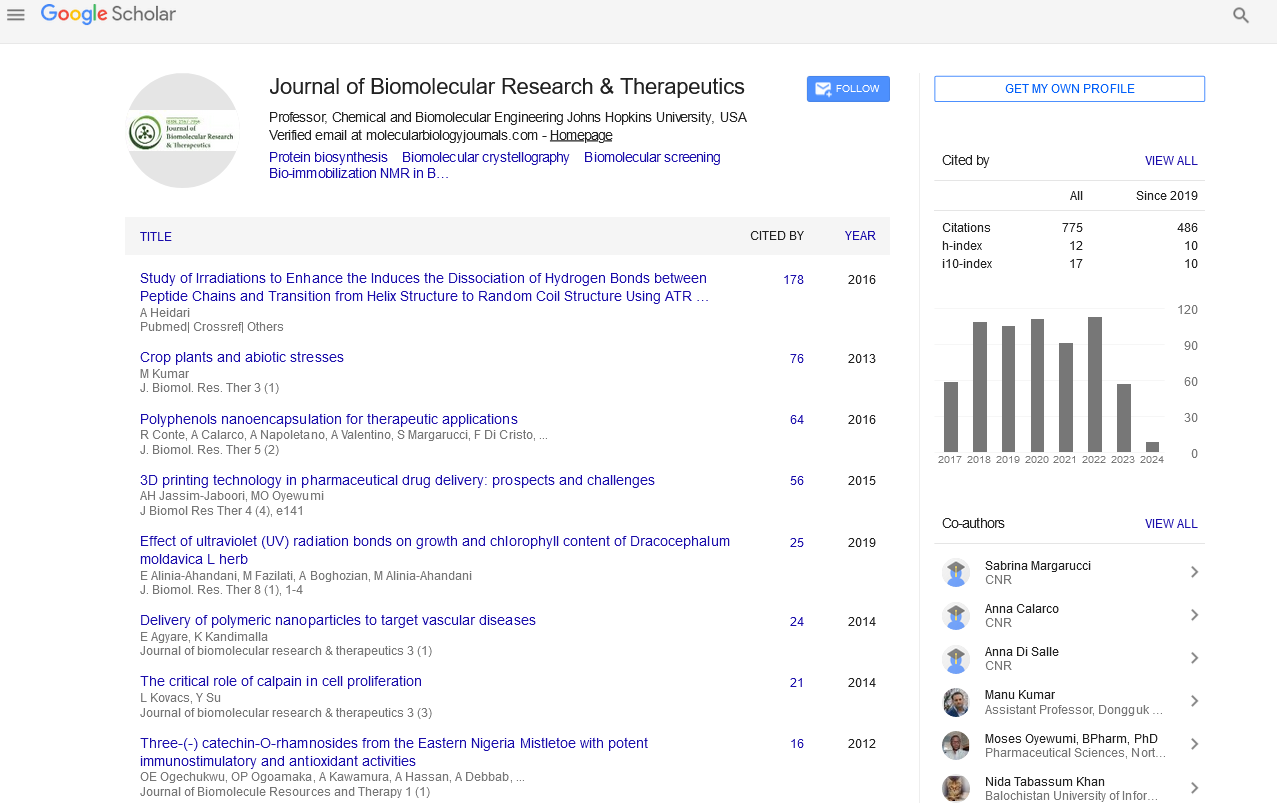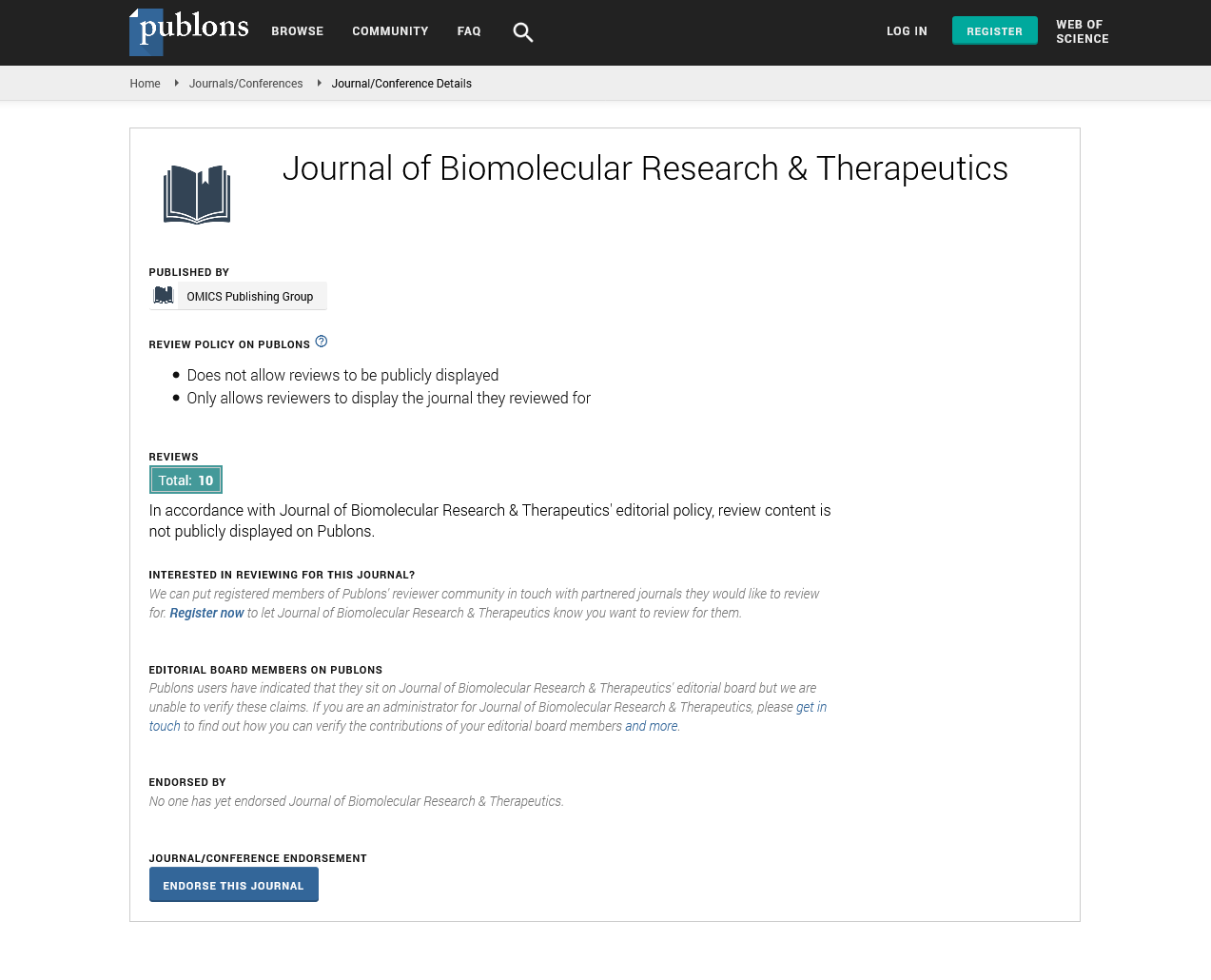PMC/PubMed Indexed Articles
Indexed In
- Open J Gate
- Genamics JournalSeek
- ResearchBible
- Electronic Journals Library
- RefSeek
- Hamdard University
- EBSCO A-Z
- OCLC- WorldCat
- SWB online catalog
- Virtual Library of Biology (vifabio)
- Publons
- Euro Pub
- Google Scholar
Useful Links
Share This Page
Journal Flyer

Open Access Journals
- Agri and Aquaculture
- Biochemistry
- Bioinformatics & Systems Biology
- Business & Management
- Chemistry
- Clinical Sciences
- Engineering
- Food & Nutrition
- General Science
- Genetics & Molecular Biology
- Immunology & Microbiology
- Medical Sciences
- Neuroscience & Psychology
- Nursing & Health Care
- Pharmaceutical Sciences
Abstract
Effect of Electrical Stimulation at Different Time on Mitochondrial Function of C2C12 Myotubes
Dong HL, WU HY, Zhao J, Huang YW, Li Z, Zhang YH and Xu XY
Objective: To study the effect of different time of electrical stimulation on mitochondrial function of C2C12 myotubes, and further explore its molecular mechanism. Methods: An electrical stimulation was given 7 days after C2C12 myotubess differentiation, of which intensity was 30 ms, 3Hz, and the stimulation time was 60 mins, 120 mins, and 180 mins, respectively. A total of four experimental 4 groups, including control group (Con), 60 mins group (E60), 120 mins (E120) and 180 mins (E180). Microscope was used to observe the muscular myotubes form; Kits were to detect MDA, SOD and ROS; Western blot was used to detect the expression of autophagy proteins and mechanism proteins, including PGC1, p-ULK, SIRT1 and SIRT3; Flow cytometry technology was used to detect muscle mitochondrial membrane potential. Results: There was no significant difference of C2C12 myotubes form after different electrical stimulation. Compared with the control group, E60 had no significant difference of mitochondrial membrane potential (p>0.05); but MDA, ROS, SIRT3 increased significantly (p<0.05), p-ULK and PGC1 increased significantly (p<0.01), SIRT1 decreased significantly (p<0.05). In E120, MDA, ROS, SIRT3 and PGC1 increased significantly (p<0.01), SOD and mitochondrial membrane potential decreased significantly (p<0.05). In E180, MDA and ROS increased significantly (p<0.01), SOD and mitochondrial membrane potential decreased significantly (p<0.01). Conclusion: Moderate electrical stimulation (60 and 120 mins) can significantly activate oxidative stress, and further promote SIRT3, PGC1 and p-ULK expression, and further promote the mitochondrial membrane potential, while excessive stimulation (180 mins) has the opposite effects


